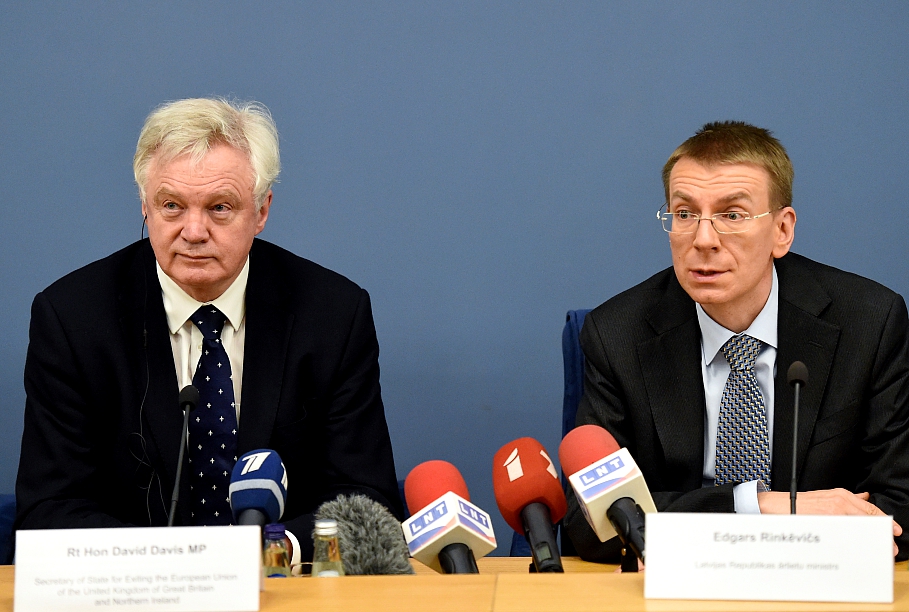Speaking in Luxembourg, Rinkēvičs, took part in the European Union’s General Affairs Council, in an EU 27 format, which examined the European Council’s draft guidelines for withdrawal negotiations with the United Kingdom.
"Presenting Latvia’s position, Edgars Rinkēvičs underlined the need for all 27 EU Member States to demonstrate their unity in negotiations with the United Kingdom. We all have our interests; therefore, the decision will also be a joint one; the integrity of the Single Market, a balance between rights and obligations, and a level playing field for all Member States are the core principles to be followed in the talks with the United Kingdom," a statement from the foreign ministry said, without quoting him directly.
Rinkēvičs drew the Council’s attention to the safeguarding of the rights of EU nationals – including those of Latvia – which should be a priority in the negotiations. It is of key importance, said Edgars Rinkēvičs, that the UK honors all financial commitments it has taken as a Member State, including those concerning Cohesion Policy and the Common Agricultural Policy.
The guidelines define the framework for negotiations with the UK and set out the positions and principles that will guide the EU during the talks. The requirement for the European Council to provide the guidelines is laid down in Article 50 of the Treaty of the European Union, or the so-called withdrawal article. The 27 EU Member States have drafted the European Council’s guidelines following the notification by the UK to the European Council on 29 March of its intention to leave the EU.
The adoption of the guidelines is expected at the European Council in the format of the 27 heads of state and government on 29 April.
The statements from Rinkēvičs chimed with those from other EU foreign ministers who are sending out the message that any attempts by the UK to split the bloc into different factions during negotiations would be wasted.
Discussions are also beginning across Europe on which EU institutions currently with centers in the UK will need to be relocated once the UK has gone, with Latvia included. Relocation of agencies will bring with it jobs and investment.





























